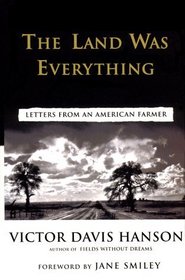Search -
The Land Was Everything: Letters from an American Farmer
The Land Was Everything Letters from an American Farmer
Author:
Before storms that can destroy his crops in an instant, the farmer stands implacable. To fluctuations in temperature that can deprive his children of their future, the farmer pays no heed. Every day the elements remind him that his future is secure only through constant effort. Like the creepers and crawlers he seeks to eradicate, the farmer toi... more »
Author:
Before storms that can destroy his crops in an instant, the farmer stands implacable. To fluctuations in temperature that can deprive his children of their future, the farmer pays no heed. Every day the elements remind him that his future is secure only through constant effort. Like the creepers and crawlers he seeks to eradicate, the farmer toi... more »
ISBN-13: 9780684845012
ISBN-10: 0684845016
Publication Date: 4/20/2000
Pages: 272
Rating: ?
ISBN-10: 0684845016
Publication Date: 4/20/2000
Pages: 272
Rating: ?
0 stars, based on 0 rating
Genres:
- History >> Americas >> United States >> General
- Science & Math >> Agricultural Sciences >> General
- Engineering & Transportation >> Professional Science >> Agricultural Sciences >> General




